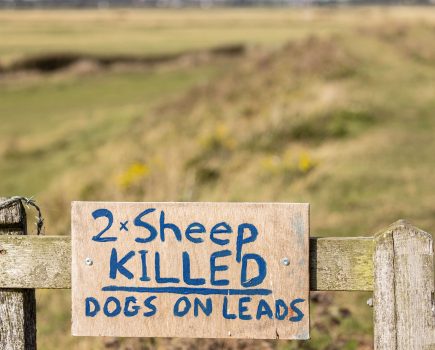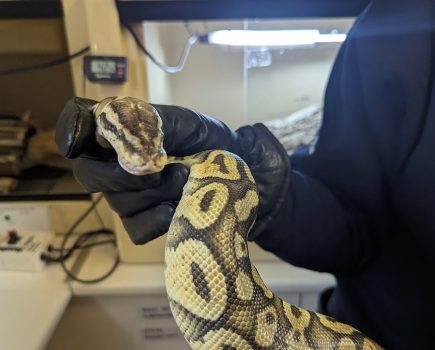Rebecca Johns reports on machinery rings and explains how they can be useful to smallholders
The Machinery Rings Association represents the interests of 11 machinery rings in England and Wales such as RAMSAK (Ring of Agricultural Machinery in Sussex and Kent) which were set up with the intention of forming a cooperative society of farmers and agricultural businesses who would share machinery, thus spreading costs and achieving some economies of scale. Some machinery rings have been very popular and successful, expanding to provide other services, while others struggle as farmers go directly to the suppliers, or set up their own farmer-controlled businesses (FCBs). Investigating your local machinery ring might give smallholders a better idea of whether it would be suitable for you – members range from large estates to holdings of just a few acres, contractors and farmers with a range of modern machinery to companies and individuals who provide services to farming such as hydraulic repairs and forestry. Let’s look at the role of machinery rings, how suitable they are for smallholders, what sort of equipment and services are available. What is a machinery ring?An important point, first, is that the ring acts only as an intermediary and not as a principal. In other words, the ring will put people in touch but won’t act on anyone’s behalf by ordering services or machinery. Machinery rings in Britain are made up of individuals who pool their machinery and labour resources for the benefit of them all. This is different to the machinery rings called CUMA (Coopérative d’Utilisation de Matériel Agricole) which are found in France and Canada where the ring actually owns its own machinery. In Britain, members are suppliers (of machinery, or services) or demanders (those looking for a machine or service), but you can be both if you have something to offer (say, sheep shearing) and something you need (installation of water pipes). The supplier benefits by spreading his machinery costs and the demander is able to reduce his capital investment in labour and machinery, while at the same time having access to equipment when he needs it. Some machinery rings such as RAMSAK, which started in 1990, offer both machinery and services to its members including construction equipment and labour, estate and property maintenance, Vocational Training Scheme applications and environmental grazing. Some of these services might be more relevant to smallholders than the actual machinery. What services are available?Machinery rings have really expanded, and diversified their activities over recent years, in line with farming generally. Angus Campbell of RAMSAK says they currently have about 530 members who can provide “anything (machine or service) in the rural sector”, and although the proportion of smallholder members is currently quite small, he would like to see this increase. Members receive a newsletter every other month which contains a For sale and Wanted section, articles of interest to the industry and other advertising. Some machinery ring websites have lists of their members, or links to their “members in action” such as Eastern Agri-link. Machinery rings are increasingly involved in locating skilled labour for larger farms cutting down on permanent staff, so smallholders with particular skills such as milking, or tractor driving, might sell their time and skills to supplement the income from their own holding, and RAMSAK is keen to encourage these people to join.Jenny, a smallholder in Sussex who breeds Lleyn sheep on 46 acres, joined RAMSAK and has found it very useful. “They organised my sheep shearing very efficiently – one phone call and it was all fixed, including the date and a price. The shearer came on the appointed day too!” She also used RAMSAK to find someone to top some of her fields, although the supplier ended up making hay so instead of paying out, Jenny received a payment, and they were both happy. In both cases, RAMSAK suggested the prices and terms which the two parties then negotiated and agreed on.We need to distinguish between machinery rings and other sorts of cooperatives such as Southern Farmers which is a buying cooperative. Buying cooperatives may be able to source cheaper domestic fuel, oil for example, or get a discount on bulk purchases of animal feed. Sometimes, a joint membership is available (for the area machinery ring, and the buying cooperative) to provide farmers with a one stop shop for all their needs. Do all jobs go through the ring?Machinery rings depend on the commitment of their members. It’s usually expected that any new business where both parties are ring members is put through the ring, and that future work between these two parties is also put through the ring. There is obviously scope for moonlighting as suppliers and demanders may contact one another directly after the initial transaction, in which case, continued membership of the ring is pointless. Where the two parties had an arrangement before becoming members, they would not have to put work through the ring. The ring exists for the benefit of all its members, who own the ring, so the value of putting business through it is far greater than the possibility of a short term saving of a few pounds by going direct. Machinery rings will always welcome the opportunity to put members in touch and try to get a job done through the ring to the satisfaction of everyone.
Does the ring buy machinery?
As I mentioned earlier, machinery rings in Britain don’t own their own machinery, so there’s no requirement for someome joining to contribute to any machinery purchases. The machinery ring model – the CUMA which operates in France and Holland – is one where the ring purchases its own machinery which is then leased to members of the ring.
Is it relevant to smallholders?
Joining a machinery ring does require careful consideration – it can be expensive for smallholders, and to be certain that it’s worth the money, check the cost of machinery available both within the ring and outside. You don’t want to find that you could have hired a post hole borer independently, down the road, more cheaply than from within the ring. Check suppliers in your area – some areas may be better served with suppliers than others, and if it’s something specific you want, do check it’s available when and where you want it.
Jenny in Sussex says that particular aspects of joining RAMSAK were especially helpful – if you’re new to an area, or new to farming, joining a machinery ring is an excellent way of making contacts and finding local suppliers. “I don’t feel like I’m being ripped off,” Jenny concludes. “I can ask RAMSAK what the going rate is for someone to install stock fencing, for example, and this gives me a base to work from when getting quotes, both from suppliers within and outside the group.” Some machinery rings are likely to be more sympathetic to smallholders than others, but the advantages to smallholders where they do join are clear – you can find up to date equipment and skilled labour when you need it, without the expense of buying and maintaining specialist equipment for occasional use. Also remember that as a smallholder, if you have some particular equipment and/or skills (say, a mini digger suitable for excavating and laying water pipes) you could join the machinery ring and offer your services. Working within the ring also means that you would be paid within 28 days as well as having opened up opportunities that you might otherwise have missed. Angus Campbell of RAMSAK welcomes smallholders and says that membership of the ring is an “excellent opportunity. Smallholders are more likely to use the ring to get jobs done as they don’t have to make significant capital outlay on their own machinery, and they can supply their own labour within the ring by doing work for other members”. This double function of machinery rings makes them particularly attractive to smallholders. Further information
English Food and Farming Partnerships
020 7213 0430 www.effp.com
Eastern Agri-link
01787 379090 www.eastern-agrilink.co.uk
RAMSAK 01580 241349 www.ramsak.co.ukThe Machinery Ring Association
01580 241349 www.machineryrings.org.uk
Farmer’s Weekly 31.10.05: article on rise in demand for skilled labour
Rebecca Johns is a freelance farm secretary in Sussex and training organiser for the Small Farm Training Group (www.sftg.co.uk)







